Important Information On Using This Service
- Ergsy carefully checks the information in the videos we provide here.
- Videos shown by YouTube after a video has completed have NOT been reviewed by ERGSY.
- To view, click the arrow in the center of the video.
Using Subtitles and Closed Captions
- Most of the videos you find here will have subtitles and/or closed captions available.
- You may need to turn these on and choose your preferred language.
Turn Captions On or Off
- Go to the video you'd like to watch.
- If closed captions (CC) are available, settings will be visible on the bottom right of the video player.
- To turn on captions, click settings.
- To turn off captions, click settings again.
Find A Professional
More Items From Ergsy search
-

The role of residential and nursing homes
Relevance: 100%
-

The role of residential & nursing homes
Relevance: 91%
-
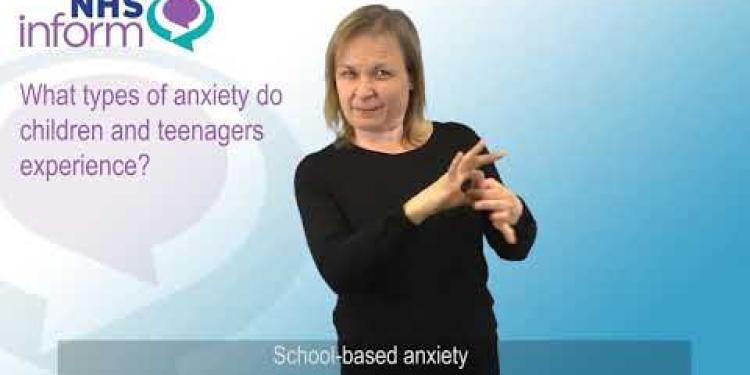
Anxiety in young people
Relevance: 87%
-

Divorce - How To Rebuild Your Life After Losing Everything
Relevance: 81%
-

Dr Hilary Jones on Residential Care PART 2.
Relevance: 79%
-

The Family Court without a Lawyer - Video 1 of 3
Relevance: 71%
-
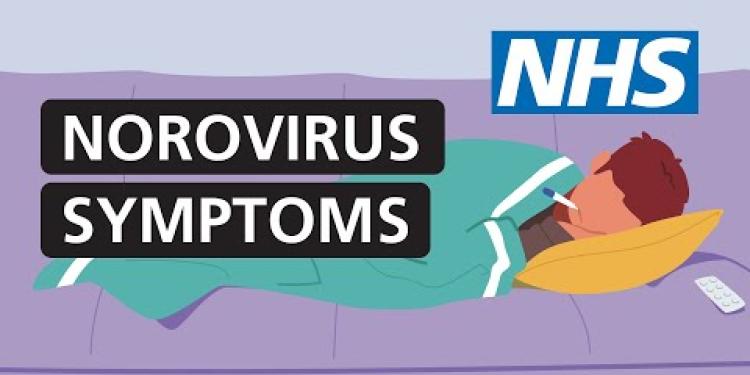
What is norovirus? (Diarrhoea and vomiting bug) | NHS
Relevance: 68%
-

Getting help and support with frontotemporal dementia (FTD) (part 2/3)
Relevance: 66%
-

Treating anxiety and depression - www.slam.nhs.uk
Relevance: 65%
-

The role of care homes dedicated to caring for people living with dementia and memory loss
Relevance: 65%
-

Adoption and dealing with a Loss
Relevance: 65%
-

Health and safety responsibilities
Relevance: 64%
-

A History of The Church of England
Relevance: 64%
-

Head and Neck Cancer Diagnosis
Relevance: 63%
-

Clinical Handover - Care 24/7
Relevance: 60%
-

Addressing the Rising Homelessness Crisis
Relevance: 60%
-

Home dialysis help for kidney patients
Relevance: 59%
-

Who can prescribe homeopathic remedies?
Relevance: 59%
-

THE LAW IN 60 SECONDS | HEALTH AND SAFETY AT WORK
Relevance: 59%
-

Divorce Step By Step - Form E - Capital
Relevance: 58%
-

How can I find a qualified homeopath in the UK?
Relevance: 58%
-
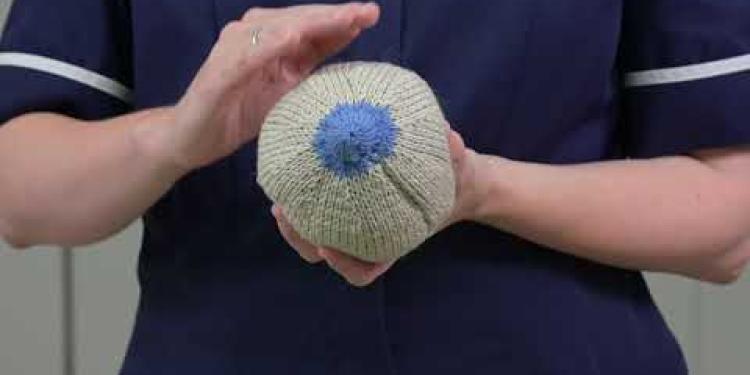
Hand expressing
Relevance: 57%
-

Dyspraxia Children: How to Help
Relevance: 57%
-

How to apply wet wrap bandaging to the head and face area.
Relevance: 56%
-

The NHS Long Term Plan for learning disability and autism
Relevance: 56%
-

Attention deficit hyperactivity disorder (ADHD) - Introduction
Relevance: 56%
-

What are some common conditions treated with homeopathy?
Relevance: 55%
-

Let's Talk Sexual Health - Home Self Testing Kits
Relevance: 55%
-

What support is available for families of individuals with PIMD?
Relevance: 55%
-

How does homeopathy differ from conventional medicine?
Relevance: 54%
-

What is eczema? General Information
Relevance: 54%
-

Let's Talk Sexual Health - Home Self Testing Kits
Relevance: 54%
-

NHS Dental Charges Explained
Relevance: 52%
-

How to treat diarrhoea and vomiting at home (adults and children aged 5 and over) | NHS
Relevance: 52%
-

Suicide and Self Harm Prevention Strategy 2023-28
Relevance: 52%
-

Dr Hilary Jones on Residential Care PART 1.
Relevance: 51%
-

Dyspraxia Symptoms & Signs
Relevance: 50%
-

How to help deaf and hearing impaired patients and staff through Covid
Relevance: 50%
-
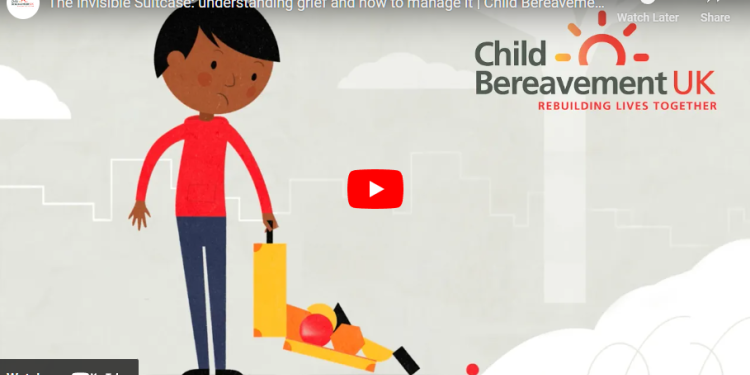
Child Bereavement
Relevance: 50%
-
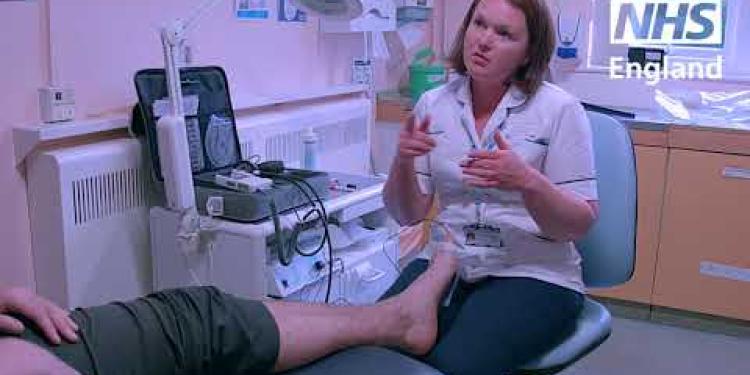
Improving outcomes for people with diabetes
Relevance: 50%
The Role of Residential & Nursing Homes
Introduction to Residential and Nursing Homes
Residential and nursing homes play a vital role in providing care and support for the elderly and individuals with specific health needs in the United Kingdom. These facilities are essential in catering to those who require 24-hour supervision and cannot safely remain in their own homes.
Residential Homes
Residential homes, often known as care homes, offer a supportive environment where individuals can receive assistance with daily activities such as bathing, dressing, and meal preparation. These homes provide a sense of community, ensuring that residents do not face isolation. Trained staff are available around the clock to ensure the well-being and safety of the residents.
Nursing Homes
Nursing homes, also referred to as care homes with nursing, are similar to residential homes but with the added benefit of on-site medical care. These facilities employ registered nurses and healthcare professionals who can manage complex medical conditions and provide treatments. Nursing homes are suitable for individuals with chronic illnesses, physical disabilities, or those recovering from surgery.
Importance of Personalised Care
Both residential and nursing homes in the UK emphasise personalised care plans tailored to the unique needs of each resident. This approach ensures that preferences, medical histories, and personal requirements are considered, leading to improved quality of life and enhanced emotional well-being for residents.
Support for Families
Residential and nursing homes also offer significant support for the families of residents. By providing trustworthy care, families can find peace of mind and experience relief from the demanding responsibilities of daily caregiving. Regular communication and visits encourage family involvement and maintain strong relationships.
Enhancing Quality of Life
These care facilities focus on creating a homely and stimulating environment through various social activities, therapies, and recreational programmes. Access to outdoor spaces, common areas for socialization, and spiritual support contribute to the overall quality of life, promoting mental and emotional well-being.
Regulation and Standards
In the UK, residential and nursing homes are regulated by the Care Quality Commission (CQC), ensuring high standards of care and safety. Regular inspections and assessments ensure that these facilities adhere to the guidelines, providing reassurance to residents and their families.
The Role of Residential & Nursing Homes
Introduction to Residential and Nursing Homes
Residential and nursing homes are places where elderly people and those with special health needs can get the help they need. In the UK, these homes are important for people who need someone to watch over them all the time because they can't live safely on their own.
Residential Homes
Residential homes, also called care homes, help people with everyday tasks like taking a bath, getting dressed, and making meals. These homes make sure people are not lonely, and there are always trained staff to help and keep the residents safe.
Nursing Homes
Nursing homes, also called care homes with nursing, are like residential homes but also have medical care available. These homes have nurses and health professionals to help with medical needs. Nursing homes are good for people with long-term illnesses, physical disabilities, or those getting better after an operation.
Importance of Personalised Care
In the UK, both residential and nursing homes make care plans just for each person. This means the care fits their likes, medical history, and needs. It helps them feel happier and healthier.
Support for Families
These homes also help the residents’ families. Because they give good care, families feel more relaxed and less worried about looking after their loved ones every day. Regular visits and talks help keep families involved and close.
Enhancing Quality of Life
These homes try to make life nice and interesting with fun group activities, therapy sessions, and things to do for fun. They have outdoor areas, places to meet and talk, and support for spiritual needs to make people feel good and happy.
Regulation and Standards
In the UK, the Care Quality Commission (CQC) checks residential and nursing homes to make sure they are safe and good places to live. They often look at these homes to be sure they follow the rules, so everyone feels safe and sure about the care given.
Frequently Asked Questions
What is the difference between a residential home and a nursing home?
A residential home provides accommodation, meals, and personal care for people who may need assistance with daily living activities but do not require medical care. A nursing home offers all of that as well as 24-hour medical care and supervision by registered nurses.
How do I know if my loved one needs a nursing home or a residential home?
Assessment by a healthcare professional or a social worker can help determine the level of care required. If your loved one needs regular medical attention, a nursing home would be more suitable. If they need help with daily activities but are medically stable, a residential home might suffice.
Are residential and nursing homes regulated in the UK?
Yes, both types of homes are regulated by the Care Quality Commission (CQC) in England, Care Inspectorate in Scotland, Care Inspectorate Wales, or the Regulation and Quality Improvement Authority in Northern Ireland.
Can residents bring their own furniture and personal items?
Many homes encourage residents to bring personal belongings to make their space feel more familiar and comfortable. It's advisable to check with the specific home for their policy on personal items.
Do residential and nursing homes offer activities and social programmes?
Yes, most homes offer a range of activities and social programmes designed to keep residents engaged and active, such as arts and crafts, exercise classes, and social events.
How are residential and nursing homes funded?
Funding can come from a variety of sources including personal savings, pensions, local authority funding, and NHS Continuing Healthcare for those who qualify. Means testing is often used to determine eligibility for local authority funding.
What qualifications do staff in residential and nursing homes have?
Care staff typically have qualifications such as NVQs/SVQs in Health and Social Care. In nursing homes, registered nurses hold nursing qualifications and are registered with the Nursing and Midwifery Council (NMC).
Are there specialist residential and nursing homes for certain conditions?
Yes, there are specialist homes that cater to specific conditions such as dementia, physical disabilities, and mental health conditions, providing tailored care and support.
Can residents leave the home for visits or holidays?
Most homes allow residents to go on visits and holidays, provided it’s safe for them to do so. It's best to discuss any plans with the care home staff to ensure all necessary arrangements and precautions are taken.
Is it possible to have a trial stay in a residential or nursing home?
Many homes offer trial stays, which can help determine if the home is a good fit for the potential resident. This is often referred to as respite care.
What measures are in place to ensure residents' safety?
Homes follow strict regulations and guidelines to ensure safety, including staff training, fire safety, secure premises, and safeguarding policies. Regular inspections by regulatory bodies ensure compliance.
Do residential and nursing homes accommodate dietary requirements?
Yes, homes generally cater to a variety of dietary needs, including vegetarian, vegan, gluten-free, and other medically-required diets. It’s important to discuss specific dietary needs with the home.
What are the visiting hours in residential and nursing homes?
Visiting hours can vary between homes, but many offer flexible visiting hours to suit the needs of residents and their families. It’s advisable to check with the specific home for their visiting policy.
How can I check the quality of a residential or nursing home?
Quality can be assessed by looking at the home's latest inspection report from the regulatory body (e.g., CQC in England). Reviews and recommendations from residents and families can also be helpful.
What happens if a resident's care needs change over time?
Care plans are regularly reviewed and updated to reflect any changes in a resident's condition. If a resident's needs become more complex, they may need to move from a residential home to a nursing home for more specialised care.
What is different between a residential home and a nursing home?
A residential home is a place where people live when they need some help. They can get help with things like cooking, cleaning, and taking medicine.
A nursing home is a place where people live when they need a lot of medical care. Nurses are there to help them.
Tools that can help:
- Pictures: Use drawings or photos to show what these homes look like.
- Videos: Watch videos to see what happens in these homes.
A residential home is a place where people live together. They get food and help with things like getting dressed or eating. People who live there don't need a doctor all the time.
A nursing home is like a residential home, but it also has doctors and nurses there all day and night. They can give medical help anytime it's needed.
Tools like picture charts or simple schedules can help understand and remember daily routines. You can also ask someone to explain things in a way that's easy to understand.
How can I tell if my loved one needs a nursing home or a care home?
It can be hard to know if someone needs more help. Here are some things to think about:
- Can they take care of themselves? Can they cook, clean, and get dressed?
- Are they safe living alone? Are they falling or getting confused a lot?
- Do they need medical help? Are there nurses or doctors they need to visit often?
- Are they feeling lonely? Do they have friends or family around them?
If you are not sure, talk to a doctor or a social worker. They can help you decide what is best. It is good to ask for help when you need it.
A doctor or a social worker can help you find out what kind of care is needed. If your loved one needs a lot of medical care, a nursing home is best. If they need help with daily things like eating or dressing but are healthy, then a residential home can be a good choice.
Do people check if care homes and nursing homes are safe in the UK?
Yes, care homes and nursing homes are checked. This means people make sure they are safe and good for people to live in.
If you want, you can ask someone you trust to go with you when you visit a care home. They can help you see if the home is clean and nice.
You can also use online tools that tell you how good a care home is. These tools show ratings and reviews from other people.
Yes, special inspectors check both kinds of homes. In England, they are called the Care Quality Commission (CQC). In Scotland, it's the Care Inspectorate. In Wales, it's called the Care Inspectorate Wales. In Northern Ireland, they are called the Regulation and Quality Improvement Authority.
Here are some tools and tips to help you understand:
- Ask for help: You can ask a friend, family member, or teacher if you don't understand something.
- Read slowly: Take your time to read each word and sentence.
- Use pictures: Sometimes, pictures can help explain words.
- Break it down: Read one part at a time. This can make it easier.
Can people living here bring their own furniture and things?
Yes, you can bring your own furniture and things like your bed, chair, or favorite toys.
It's good to have your special things around you. It helps you feel at home.
If you need help moving your things, ask someone to help you. Movers or friends can help carry your stuff.
You can also use a checklist to remember what you want to bring.
A lot of homes like it when people bring their own things. It helps make their space feel more like home and comfy. It is a good idea to ask the home about their rules for personal things.
Do care homes have fun activities and social events?
Care homes are places where people live when they need extra help. They often have fun activities and social events for people to enjoy and make friends. These can be games, music, arts and crafts, or trips outside.
If you want to know more about the activities at a care home, you can:
- Talk to someone who works there.
- Ask residents what fun things they do.
- Look at any information they give you, like a leaflet or a website.
Yes, most homes have lots of fun things to do. You can join in activities like making art and crafts, doing exercise, and going to social events.
Here are some helpful tips:
- Use pictures or drawings to understand better.
- Ask someone to read with you.
- Break up the text into smaller parts.
Who pays for care homes?
People live in care homes to get help. Care homes can be paid for in different ways:
- The government: Sometimes the government helps pay. They look at what money you have.
- Your own money: Some people pay with their own money if they have enough.
- Family help: Sometimes family members help pay.
Talk to family or a helper if you have questions. They can find out more. There are tools online to help you. You can also talk to someone at social services for support.
Money to pay for care can come from different places. Some people use their own money, which can be savings or pensions. Others might get help from their local council, or from NHS Continuing Healthcare if they qualify for it. To see if someone can get money from the council, a test often checks how much money they have.
What training do workers in care homes have?
Workers in care homes need special training to help people. They learn how to take care of people safely and kindly.
If you want to know more about their training, you can ask someone who works there. You can also read information that the care home gives to visitors.
Some ways to get help understanding this are:
- Ask a friend or family member to explain it to you.
- Use a computer or phone to read more information online.
- Watch videos about care homes and what workers do.
People who work in care usually have special training like NVQs or SVQs in Health and Social Care. In nursing homes, there are nurses who have special nursing training. They are also registered with a group called the Nursing and Midwifery Council (NMC).
Are there special care homes for people with certain health needs?
Some care homes are for people who have specific health problems. These homes have trained staff to help.
If you are looking for a care home, these tips can help:
- Ask your doctor for advice.
- Search online for care homes near you.
- Visit care homes to see what they are like.
- Talk to staff and ask questions about the care they offer.
Yes, there are special homes for people who need extra help. These homes help people with memory problems, problems moving, or mental health needs. They give the right care and support to make life better for those people.
Can people who live here go out to visit or go on holiday?
Most people can go on visits and holidays from their care home if it's safe. Talk to the care home staff about your plans. They can help make sure everything is safe and ready for you.
Can I try living in a care home for a short time?
Yes, you can stay in a care home for a little while to see if you like it. This is called a 'trial stay'. It helps you decide if the home is the right place for you.
Here are some tips to help you:
- Ask the care home if you can visit and look around first.
- Talk to staff and people who live there to learn more.
- Bring things from home that make you feel comfortable.
- Write down any questions you have to ask the staff.
- Tell someone you trust about how you feel during the trial stay.
Many homes let people try living there for a short time. This helps to see if the home is nice and comfortable for them. This is sometimes called respite care.
How do we keep everyone safe?
Homes have rules to keep everyone safe. These rules cover:
- Training for workers.
- Fire safety checks.
- Keeping buildings secure.
- Protecting people from harm.
Inspectors check homes often to make sure they follow these rules.
Do homes for older people help with special food needs?
Yes, homes for older people can help with special food needs.
If you can't eat some foods, tell the people at the home. They will make sure you get the right food.
It is important to talk about what you need. Use a list or pictures to help explain. You can also ask someone to help you talk to them.
Yes, homes usually offer different types of food. They can make food for people who are vegetarian, vegan, or need to eat gluten-free. They can also help with other special diets for health reasons. It is a good idea to talk to the home about what food you need.
When can people visit care homes?
People can visit care homes at certain times during the day.
Check with the care home to find out the best time to visit.
You can call or ask a staff member to help.
Visiting times can be different at each home. Many homes let you visit at different times to help families and the people living there. It's a good idea to ask the home about their visiting rules.
How can I check if a home is good?
You can check how good a home is by reading the latest inspection report. This report is from a group that checks homes, like the CQC in England. Also, reading what people say about the home and what their families think can help you know if it is good.
Here are some tips to help you:
- Read short reviews because they are easier to understand.
- Use tools like text-to-speech if you find reading hard.
- Ask someone to help you if you have questions.
What if a person's care needs change?
Sometimes, a person's needs for care can change. This might be because they get older, or they have new health problems. When this happens, it's important to make sure they still get the right help.
It's a good idea to talk to someone about these changes. You can talk to a doctor, a nurse, or a social worker. They can help you decide what new care is needed.
There are some tools that can help, like checklists or planners. These can make it easier to see what care is needed.
Remember, it's okay for needs to change, and there are people who can help.
We look at care plans often to see if anything has changed. If someone needs more help, they might move from a residential home to a nursing home where they can get special care.
Useful Links
Useful links from: Impact of Rising Energy Prices on Household Budgets
- NHS - Help with health costs Information on what support is available for health-related costs and how you can access it, particularly useful for households struggling with rising energy prices.
- Citizens Advice - Help with your energy bills Citizens Advice provides practical tips and advice on managing energy bills and access to available grants and benefits.
- Turn2us - Grants Search Turn2us offers a free and easy-to-use Grant Search tool to help you find grants and funding opportunities, which can be a vital resource if rising energy costs impact your household budget.
- National Energy Action (NEA) - Warm and Safe Homes National Energy Action (NEA) provides resources and advice on how to keep your home warm and safe, targeting those who may be affected by increasing energy prices.
Useful links from: Impact of Housing Shortage on Local Communities
- NHS - Housing Shortages and Health This NHS page discusses the impact of housing shortages on health and well-being, highlighting key areas where inadequate housing can affect physical and mental health.
- Shelter UK - The Housing Emergency Shelter UK outlines the current housing crisis, its causes, and its impact on local communities. The charity also provides information on how individuals can support their campaigns and initiatives.
- Crisis UK - The Impact of Homelessness Crisis UK dives into the effects of the housing shortage, focusing specifically on how it contributes to homelessness and the broader implications for society.
- The King's Fund - Housing and Health The King's Fund provides an in-depth look at how inadequate housing affects health and well-being, using research and case studies to illustrate these impacts.
Useful links from: What is end of life care?
- NHS - End of Life Care Comprehensive guide by the NHS explaining what end of life care involves, how it is provided, and what services are available.
- Marie Curie - End of Life Care Marie Curie offers advice and support for people with a terminal illness, including information on hospice and palliative care services.
- Macmillan Cancer Support - End of Life Care Provides resources and support for individuals affected by cancer, including guidance on end of life care and making preparations.
- Hospice UK - What is Hospice Care? Hospice UK provides information on hospice care, its benefits, and how it can support individuals at the end of life.
Useful links from: Animation - Primary care and NHS 111
- NHS - How 111 Works Provides detailed information on how the NHS 111 service works, including when to use it and what happens when you call.
- NHS - NHS 111 online Official website for NHS 111 online where you can get urgent healthcare advice or help online for yourself, your child, or someone you care for.
- Healthwatch England - NHS 111 Healthwatch England provides information on what to expect when you call the NHS 111 service, including insights and advice.
- NHS - Primary Care Services Offers information on GP services as part of primary care, including how to register with a GP and what services are available.
Have you found an error, or do you have a link or some information you would like to share? Please let us know using the form below.
- Ergsy carfully checks the information in the videos we provide here.
- Videos shown by Youtube after a video has completed, have NOT been reviewed by ERGSY.
- To view, click the arrow in centre of video.
- Most of the videos you find here will have subtitles and/or closed captions available.
- You may need to turn these on, and choose your preferred language.
- Go to the video you'd like to watch.
- If closed captions (CC) are available, settings will be visible on the bottom right of the video player.
- To turn on Captions, click settings .
- To turn off Captions, click settings again.




